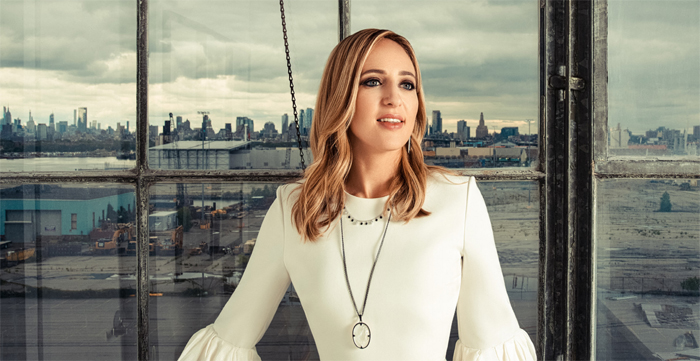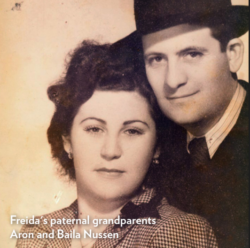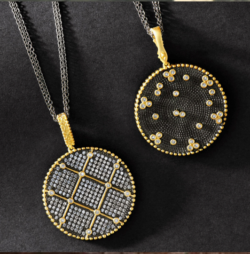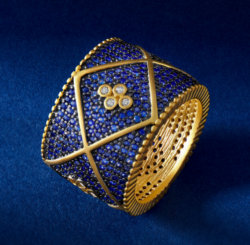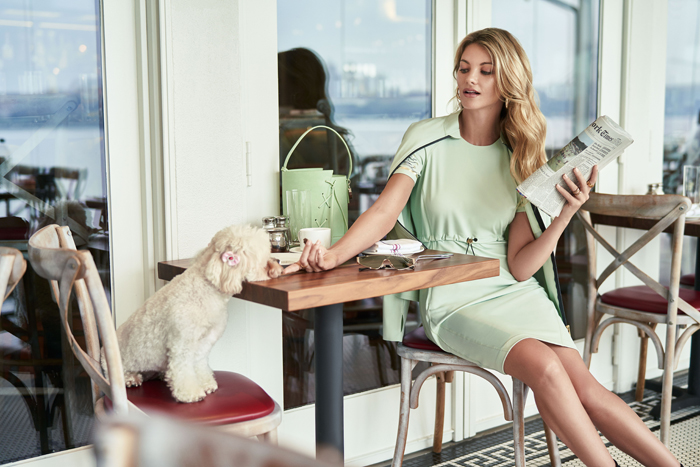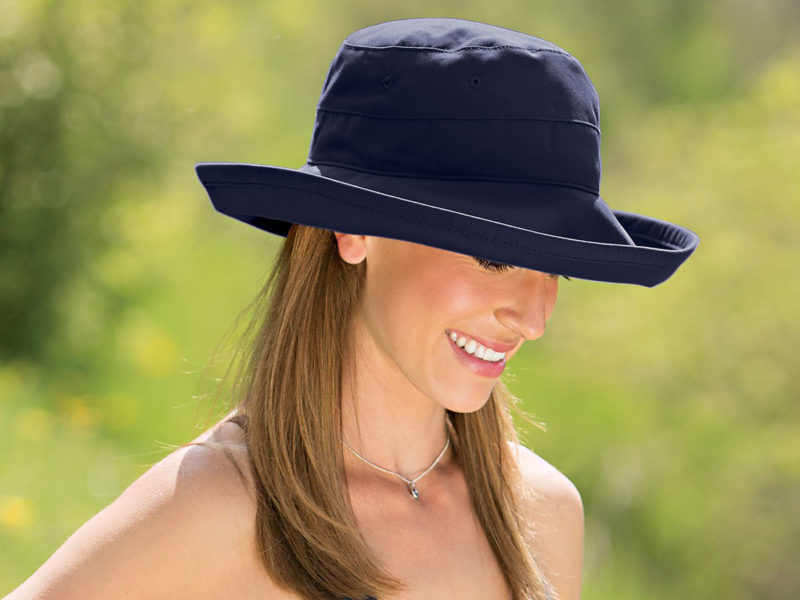Freida Rothman is a nationally known jewelry designer whose jewelry is sold across the country at Nordstrom, Neiman Marcus, Bloomingdale’s and independently owned jewelry stores.
She designs every piece that bears her name and wants the wearer to be reminded of her inner strength when they put on a piece of her jewelry.
Her #GRITtoGLAM hashtag on Instagram symbolizes more than just the mantra behind her designs. It’s a nod to the life that her grandparents created, all four Holocaust survivors, when they came to Brooklyn. It’s a lesson that Freida learned young and wants to pass along to her children, “that you can really find beauty anywhere.”
“My father started this business close to 40 years ago,” says Freida of the jewelry business that now bears her name, the name of her great grandmother who died three weeks before the liberation of Bergen-Belsen concentration camp.
“His father (Aron Nussen) was a house painter and he wanted his parents to be busy, to have something to do, so his mother (Baila Nussen) helped him a lot with the accounting division, she was definitely a large part of his company.”
In fact, it was Baila who encouraged her son to start his jewelry business on her dining room table when he was just 19 years old. As the couple grew older, Aron would sometimes come into the office to hang out, or bag some items, just to get him out of the house and give him something to look forward to.
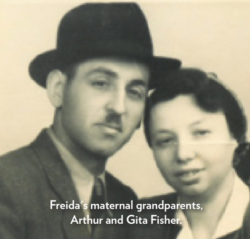 Freida’s maternal grandparents, Gita and Arthur Fisher, met in a displaced persons camp after World War II, and they married while still in Europe. They moved to Israel and lived there for a few years starting in the early ’50s.
Freida’s maternal grandparents, Gita and Arthur Fisher, met in a displaced persons camp after World War II, and they married while still in Europe. They moved to Israel and lived there for a few years starting in the early ’50s.
“My grandmother was a very strong woman (and one day) she said, ‘We need to have some money to raise our family, so I am going to America,’ ” says Freida. “She went by herself. She didn’t speak the language, and she came before my grandfather to Brooklyn to see this place where you could make parnasa (a living).”
Gita found work in a clothing factory and settled in Williamsburg, Brooklyn, where her only surviving uncle lived and most people spoke her native language of Yiddish. When she was settled, she sent for her husband and four children. She lived in that same apartment, the home where she raised her four children, until she died in 2018.
Aron Nussen’s late family, a wife and two children, died at Auschwitz. Baila was in Bergen-Belsen with her mother, Freida. A month before the camp was liberated, Freida died. “She (Baila) would always tell me whenever she saw me, ‘You have the same blue eyes as my mother,’ ” says Freida.
“I always feel very honored to have Freida’s name and to carry that legacy, it’s very special to me,” she says. “I speak about my grandparents every single day; I have two huge pictures of them hanging in my office because they inspire me so much.
“I have found that everyone in my office, my team, they have changed because of my grandparents,” admits Freida. “It’s because you realize every day that you can’t complain. You really can’t.”
CAMPAIGN FOR CHANGE
Freida grew up in the jewelry business. “My father would come home with boxes full of jewelry and ask us kids to polybag and help him get these orders out because he was so busy,” she remembers. He would also pay people in the neighborhood to bag, and sometimes there was a line outside the house of people who wanted the work. She jokes that they never were short on bar or bat mitzvah gifts.
She launched her own line, “Freida Rothman” in 2013. Freida is an artist, particularly fond of sketching and painting. She had been creating designs for other jewelry designers when her husband, Matt, said, “You realize that you are doing this for everyone else, I think it’s time to do this for yourself.”
Freida went to her first trade show with her collection called “Love Knot,” and Nordstrom picked it up and launched it in 25 of its stores.
“It was only the second time in the history of the company (Nordstrom),” she says. “They usually start with 5 stores; then they go to 6 , 7 and 10. So that gave me the push, and confidence. I turned to my husband and said, ‘I think we can do this.’ ”
Her Brooklyn, NY surroundings inspire her unique designs; drawing from her rich environment, she combines the textures of her neighborhood. In one of her signature pieces, the double-sided pendant necklace, matte gold crisscross details represent the train tracks outside her Brooklyn office in Industry City and the black rhodium surface represents the asphalt surrounding her.
In the fall of 2019, Freida was in a meeting with her creative team discussing future lines and trending topics, when someone asked Freida, “Who do you consider an empowered woman?” She thinks for a moment and responds, “For me, it’s always been my grandmothers. I really don’t know anyone else that’s even close to what it means to be an empowered woman.”
She decided at that moment that she wanted to start a project honoring survivors.
“They are so strong, and they are women to look up,” she says. “They are heroes that live amongst us. Sometimes you get stuck in that fashion cycle, and I attend all the shows and I go everywhere, and I wanted what I do every day to have more meaning to it.”
Freida wanted to make sure that her entire company feels like they are working towards something higher than fashion. She began thinking of how to spread a story of strength and keep her grandparents’ story alive through what she does.
The creative team asked her if she knew any survivors that were still alive. She said, “I do! Give me a couple of minutes.”
She called her good friend Judy who has a great aunt and grandmother who are survivors and live together. Freida has fond memories of these ladies as she would go to Judy’s house on Shabbos and play when she was a girl.
After making sure that they were both alive and well, Freida posed her request, “I’m thinking out loud here, I really want to highlight women of strength. I want to highlight your incredible great aunt and grandmother. Would they be willing to do an interview? They can wear my jewelry or not; I just want to give them a platform to tell their story.”
“Yes, I want them to do it – they have to do it,” Judy responded before she even asked them.
CELEBRATION FOR SURVIVORS
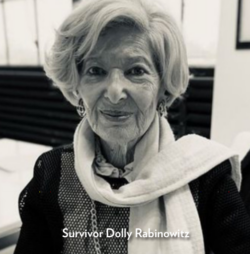 Dolly Rabinowitz, the great aunt, agreed, but only if it was OK with the Nachas Health and Family Network, a nonprofit she belongs to that is devoted to social events and support services for the Holocaust survivor community in Brooklyn.
Dolly Rabinowitz, the great aunt, agreed, but only if it was OK with the Nachas Health and Family Network, a nonprofit she belongs to that is devoted to social events and support services for the Holocaust survivor community in Brooklyn.
Freida reached out to Raizy Horowitz, co-director of Nachas. She remembers being extremely nervous as she began her spiel, “I’m working on this story – it’s fashion, and I know that she’s a survivor. I would love to combine the two where I can use my platform, because I find that fashion doesn’t focus on anything like this – and the story means so much to me.”
As Freida took a breath from her story, she was worried about what Raizy’s reaction would be.
But her response was, “Absolutely, they must!” She also asked Freida to repeat her name and told her that she recently stayed at her house when she needed a place to stay for Shabbat. Freida explained that she has a special guest area that she lets neighbors use when they have visitors who need a place to stay, and she doesn’t always meet her guests.
“For you, I stayed in your house, of course, I’m going to help you,” says Raizy. “Let’s make this happen.” Raizy then called Dolly and told her that everything was OK.
Freida scheduled a photo shoot and interview for the following Wednesday at 92-year-old Dolly’s home, where she lives and cares for her 103-year-old sister, Suzi.
Raizy called Freida and asked her if before she went to Dolly and Suzi’s home if she could come to a survivors’ get together to meet some of them and describe what she was doing.
Freida went to meet them. “I’m this young girl coming to speak to them about their crazy stories, and I was nervous,” she says. About 30 women were having their lunch and the first thing she says is, “I’m a granddaughter of survivors. So at least they understand I can understand a little – they know where I come from.”
She went on to explain that she wants to raise awareness about their stories, and that she has the platform to do good and feels the importance of sharing their stories with the world.
They were all very receptive, and many of the women shared their stories with Freida as she made her way around the room. “The first lady, she’s holding my hand, first of all, when they hold your hand you feel something, you feel their strength,” says Freida. “This was a room full of Anne Franks. Each story was more amazing than the next.”
Freida left the luncheon and went over to Dolly and Suzi’s house. This was their first time the sisters did a formal interview.
“We sit down and we start to the interview with these two incredible women, and they shared their stories – there wasn’t a dry eye in the room,” she remembers. “They were holding hands; they both have the numbers (tattooed) on their arm.”
Freida asked Dolly what she would define as her “moment of strength.”
She explains that when she was on the death march (a forced march of prisoners in which individuals are left to die along the way) with her three sisters, Suzi couldn’t walk anymore. They knew if she fell, she would be shot by the Nazis. The two other sisters carried Suzi on their backs the whole death march because they knew otherwise, that would be the end. They each weighed about 40 pounds, it was cold, it was January, and they carried their sister.
“That was my moment,” says Dolly. All three sisters survived.
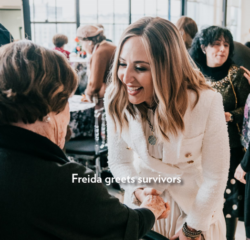
The next day, Freida had an idea. It was almost Hanukkah and she wanted to do a special event – a Women of Strength luncheon. She called Raizy and shared her idea and asked her how many ladies she could bring. “She said, ‘I can get up to 55 survivors to come to this luncheon,’ ” remembers Freida.
She decided that the luncheon was not going to be focused on what happened to the survivors but to celebrate their life. To celebrate how they rebuilt their community, celebrate their courage and their strength.
Freida and her team put together the luncheon in three weeks and held it at their modern, chic office with the Statue of Liberty in the distance. They invited press including The Wall Street Journal, New York Times, NBC, and the Associated Press to interview survivors.
She invited Hasidic superstar, Shulem Lemmer, and he sang happy songs for them, Yiddish songs like Oyfn Pripitchik, and Hanukkah songs. “My favorite part of that luncheon was when they all got up to dance,” shares Freida. “I didn’t ask them to dance; they just felt it in their hearts, the joy. It was incredible.”
She continues, “I want them to feel happy. We are celebrating your life after, how you rebuilt from the ashes, how you came out of this. Thanking them for teaching us everything they taught us.”
People asked her if she was scared to tie her brand to survivors. “At this point, no. Maybe a couple of years back I would have been, but now I want every day to mean something,” says Freida. “I’m doing something good, especially with the rise in anti-Semitism, we have to educate.
“The thing is, if not me, then who?”
A MATTER OF PRIDE
When Freida was growing up, almost everyone she knew was a grandchild of a Holocaust survivor. Now she travels around the country doing trunk shows (where Freida presents her merchandise to potential customers) and meeting people of all walks of faith.
When she first launched her brand, she would not go into detail about her family’s history. She would share that she was a “second-generation jeweler” and leave it at that.
“I had a consultant recently that came into my business and he started digging more into who I am, my background, and in passing, I mentioned that all four of my grandparents were survivors,” says Freida. He’s like, ‘Do you tell people that?’ and I’m like, ‘No,’ and he said, ‘Do you understand how powerful it is?’ I understand how powerful it is, but nobody wants to hear it. And he said, ‘I promise you, they do.’ ”
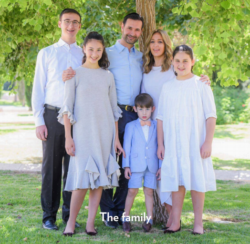
He wanted to explain his point further, so he painted a scenario for her. “I want you to think of a room of 100 people who are in the world of jewelry. And you ask, ‘Who in here is a woman?’ 40 stand up; ‘Who here is married?’ 30 stand up; ‘Who here have four children?’ maybe 10 stand up; ‘Who here have one grandparent who is a Holocaust survivor?’ maybe one person stands up; ‘Who here have four grandparents who are Holocaust survivors?’ You’ll be the only woman standing.”
She recently did a trunk show in Charleston, IL, and she started telling the women there the story of who she is and where she comes from. “They could not stop hugging me, and no one was Jewish!” says Freida. “They were just so supportive and so loving they just loved hearing the story, and they wanted to hear more.”
Once Freida discovered that sharing her story is a source of inspiration for many, it gave her the courage to tell the stories and be proud of who she is, not to be ashamed.
“Recently someone asked me, ‘Are you sure you want to go there,’ and I told them, ‘I’m proud, it’s OK, I’m done hiding.’ This is who I am.”
She shares that she has only received the most beautiful, positive feedback since sharing her story – not one negative or anti-Semitic remark.
“I have four children, age 7, 13, 15 and 19, and they are all named after survivors,” says Freida.
She makes it a point to tell each one the story of who they are named after, so they understand.
Freida had a non-Jewish employee ask her one Friday why she was shomer Shabbos, that it seemed hard and she was so busy with this or that, so why does she do it?
Her answer was, “If you understand where I come from, if you understand my grandparents survived just to keep this alive and what my people went through. How can I say, ‘Goodbye, I’m done, I’m not doing this.’ It’s on my shoulders, and I believe in it, and I think it’s a beautiful way to raise my family.”
Another beautiful thing is that Freida has discovered through sharing others’ stories that she can embrace her heritage, and there is nothing more empowering than that.
To learn more about her jewelry, visit freidarothman.com.


